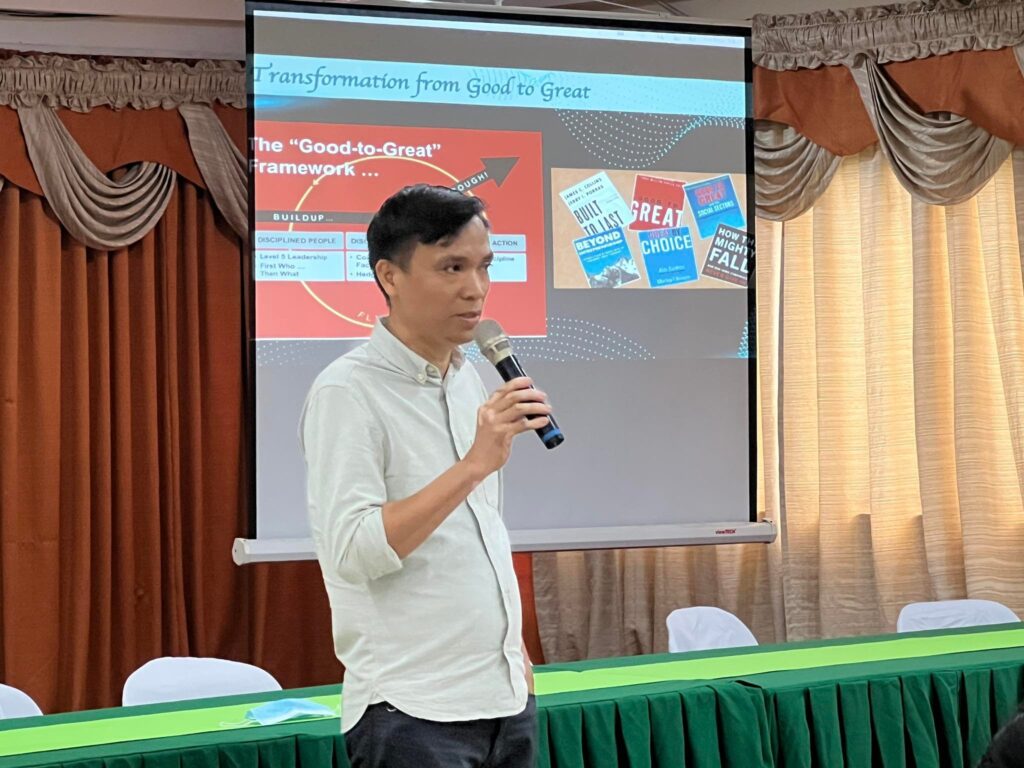
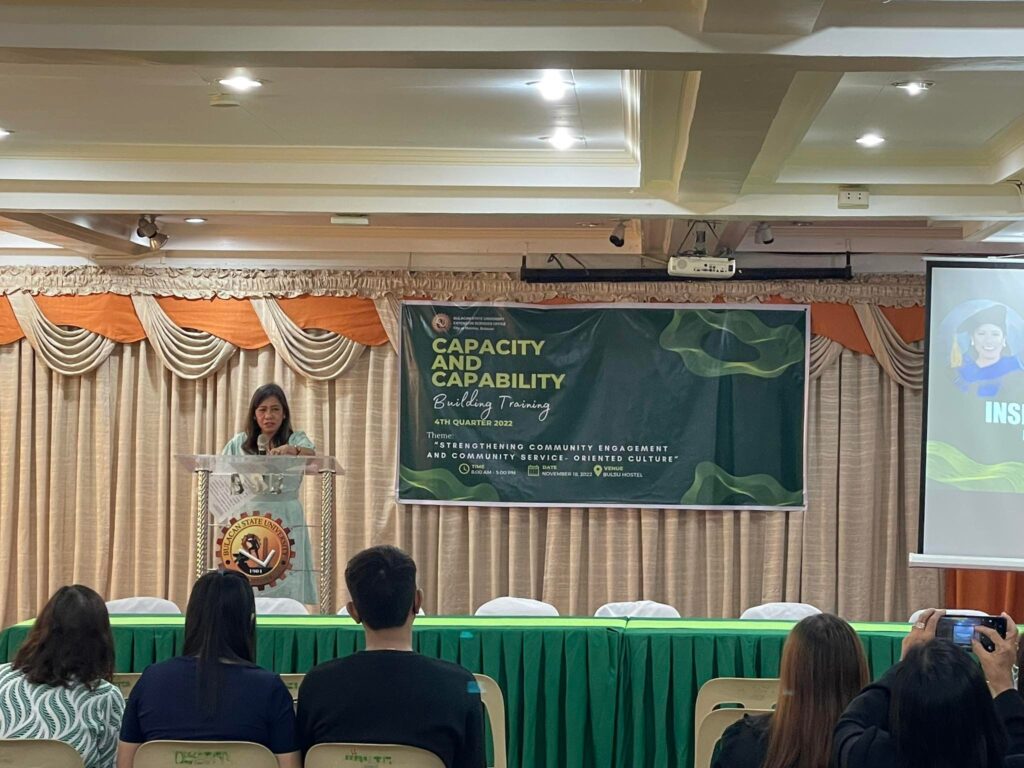
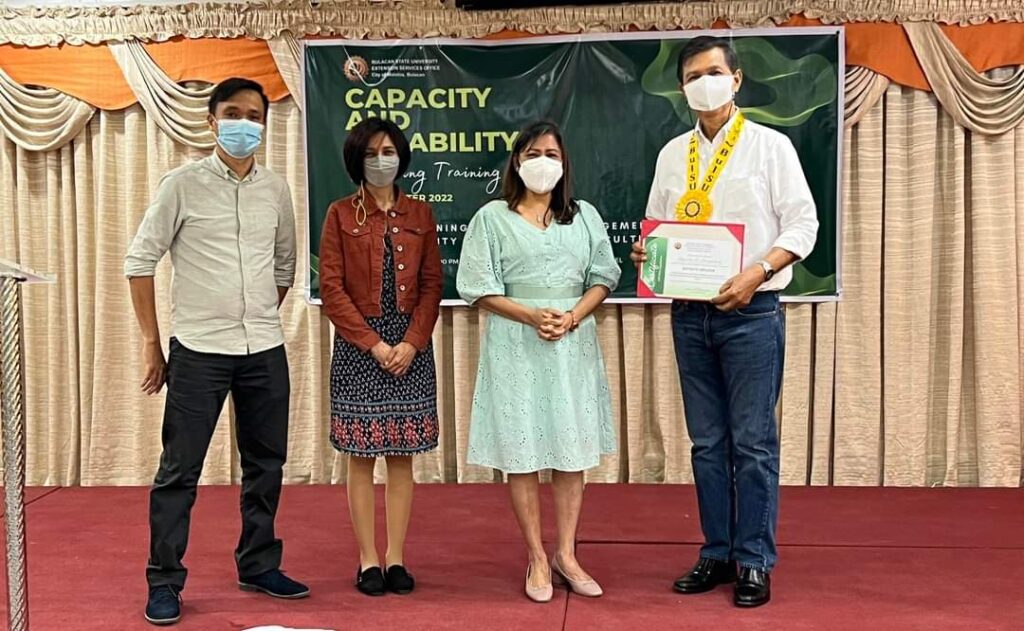

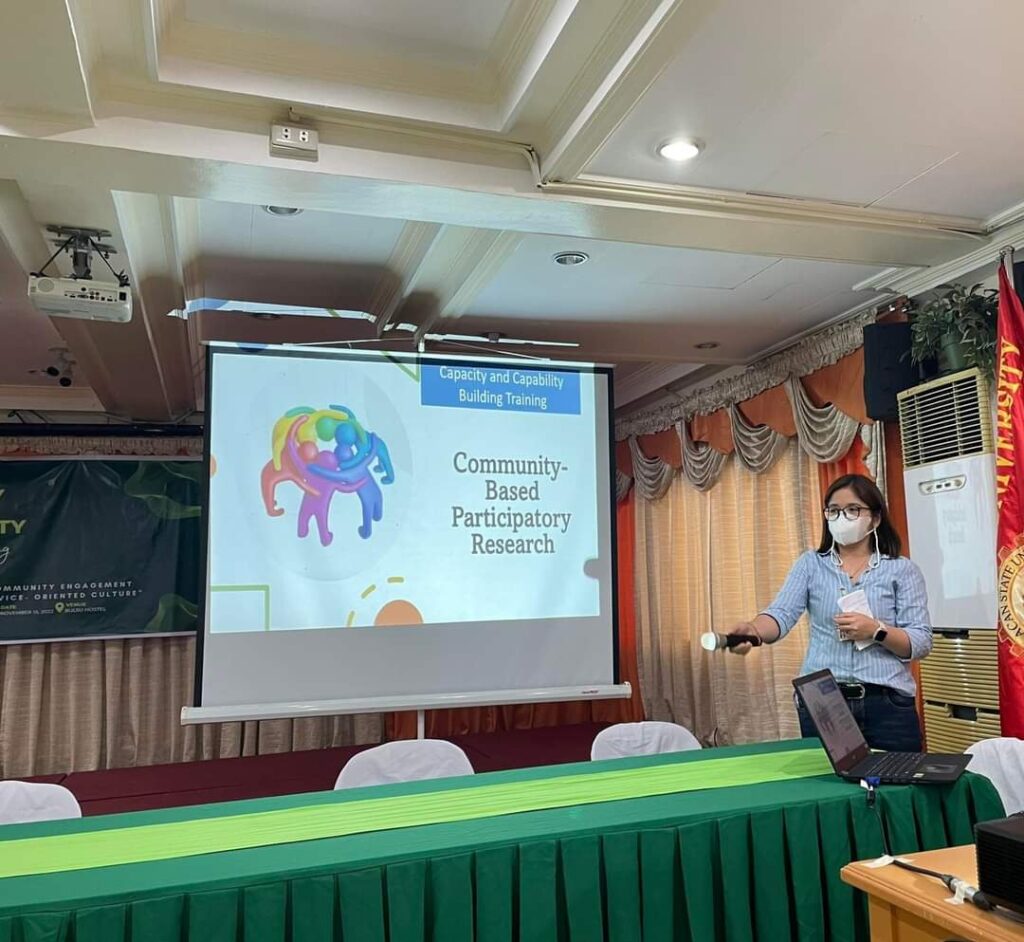
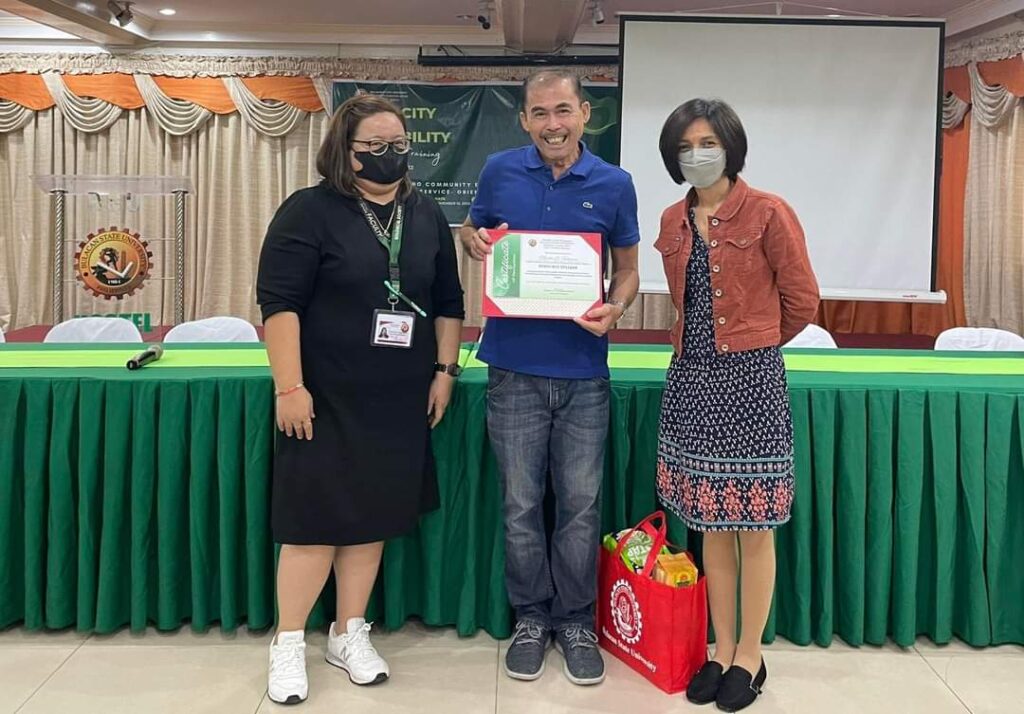
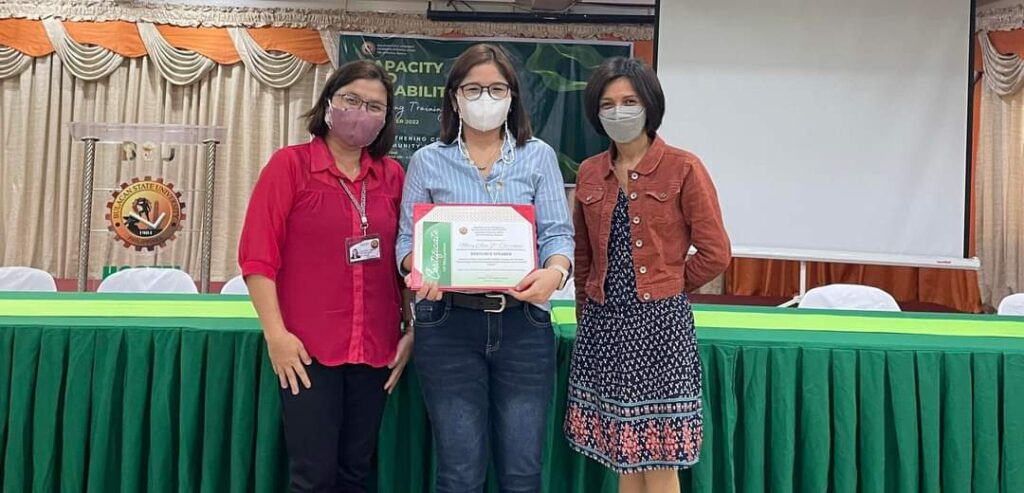
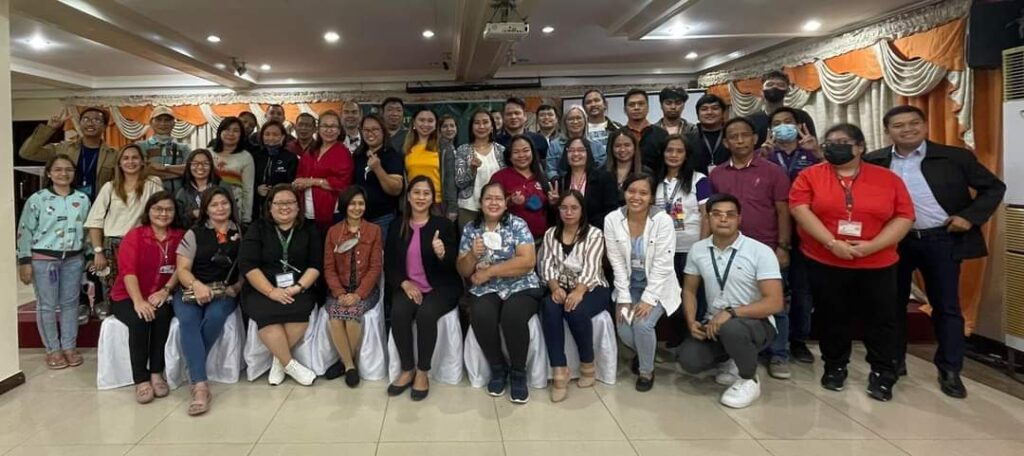
ESO boosts BulSU community’s knowledge in providing extension services through the conduct of capacity and capability building training
To further improve the quality of providing responsive public services directed toward the rural population, the Extension Services Office conducted a Capacity and Capability Building Training carrying the theme, “Strengthening Community Engagement and Community Service-Oriented Culture last November 18, 2022 at BulSU Hostel Function Hall. It was participated in by the Deans, Program Heads and College Extension Service Unit Heads of Main and External Campuses.
The University President, Dr. Cecilia S. Navasero-Gascon in her inspirational message, lauded the efforts of the University through the extension services for extending responsive community engagements despite the challenges brought by the pandemic. She also challenged the BulSU community to assume their role in taking part on providing high impact extension services for sustainable socio-economic growth and nation-building. Following her message, Engr. Erwin dR. Magasakay, Vice President for Research Development and Extension.
Keynote and Resource speakers include, former CHED Commissioner, Dr. Ruperto S. Sangalang; Dr. Lilibeth P. Novicio, Chairperson of Cavite State University Department of Forestry and Environmental Science College of Agriculture, Food, Environment and Natural Resources; Dr. Richard F. Clemente, Former Director for BulSU Research Management; Dr. Mary Ann P. Caranza, BulSU Executive Director for External Relations and Internationalization; and Dr. Nicolo Velasco, Former Head for BulSU Planning Office and Campus Director for Extension Services – External.
In his discussion, Dr. Sangalang presented the real challenges faced by the Universities in doing extension services and also highlighted the practices to develop a culture of community engagement. Following his lecture, Dr. Novicio shared about the Science for the Convergence of Agriculture and Tourism (SciCAT) which is a collaborative project between Cavite State University; DOST – PCAARRD; the University of the Philippines Institute for Small Scale Industry (UPPISSI); Department of Tourism and seven selected Magsasaka Siyentista of the Philippines. According to Dr. Novicio, SciCAT developed Magsasaka Siyentista Farms into tourists’ attractions providing employment and entrepreneurship opportunities while showcasing matured technologies funded by DOST- PCAARRD.
The next discussion was led by Engr. Erwin dR. Magsakay, Vice President for Research Development and Extension. He presented the BulSU RDE Roadmap emphasizing the new policies and programs geared toward the UNSDGs.
In the afternoon session, Dr. Richard Clemente expressed the need to produce transfer of technologies stemmed from research-based and sustainable extension services programs, activities, and projects. Meanwhile, Dr. Carranza explained the importance of community-based participatory action research all throughout the duration of the process that will eventually help the proponent to properly record the progress and impact of the study extended to the community. For the last lecture, Dr. Velasco gave key points in doing impact study. He also reiterated that impact studies should not be for compliance but for societal change.

